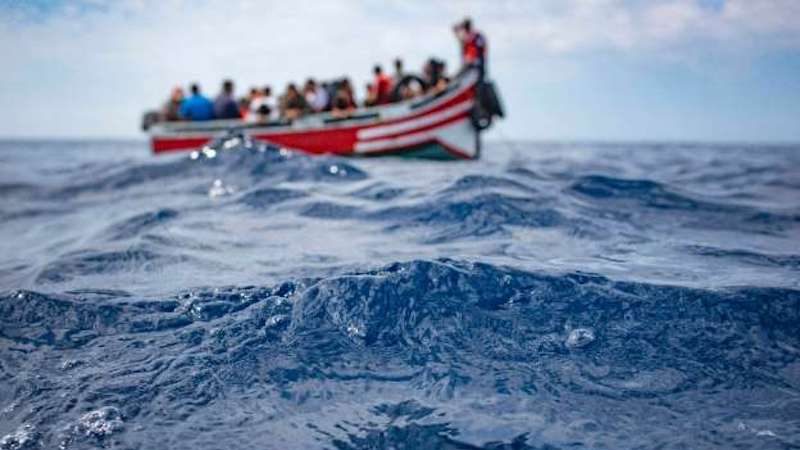Humanitarian NGO Medicins Sans Frontiers (MSF) documented numerous cases in 2022 and 2023 where Malta failed in its legal responsibilities to coordinate rescues and provide assistance to those at risk of drowning, leading to people dying or being returned to unsafe countries.
The report ‘No One Came to Our Rescue: The Human Costs of European Migration Policies in the Central Mediterranean’ found that European Union member states are backing away from their duty to rescue those at sea, underlining a grim picture of a neglected humanitarian space where the number of shipwrecks is multiplying.
This, the report said, has created a situation where, since the start of 2023, an average of eight people have lost their lives or gone missing in the Central Mediterranean every day.
In the Central Mediterranean, both Italy and Malta are primarily responsible for coordinating rescues in their respective Search and Rescue Regions (SARs). They are also responsible for cooperating with neighbouring states to conduct rescues outside of these zones.
But in practice, this has not happened.
“In the past months, both the Maltese and Italian Rescue Coordination Centres, as well as the EU border agency Frontex, have retained relevant information about distress cases from civilian SAR vessels ready to assist, and thereby delayed or prevented rescues,” reads the report.
According to the findings, Malta has systematically disengaged from rescues at sea in recent years despite maritime conventions and regulations and the Malta Merchant Shipping Act, which legally obliges the authorities to provide “adequate and effective search and rescue service”.
Instead, the Maltese authorities have ignored distress calls and have been involved in “several” pushbacks. MSF said Malta is not legally or effectively coordinating ships to respond to distress situations in due time and is violating its obligations under the law of the sea.
Under maritime law, several factors must be considered before deciding whether a situation at sea can be regarded as one of distress. These include the seaworthiness of the boat, weather conditions, the number of people on board about the type and condition of the boat, the presence of supplies such as fuel, food, and water, the presence of a qualified crew, and any need for medical assistance.
Based on these criteria, the level and type of response is decided.
But despite the responsibilities of the Maltese authorities, MSF said they conducted 33 rescues inside the Maltese SAR between January and September 2023 but not one involved the coordination of Maltese authorities.
Furthermore, MSF said Malta’s rescue coordination centre ignored requests to share information on open distress cases and calls for support from merchant vessels actively searching for missing boats.
In other words, not only did Malta fail to carry out any search or rescue activities, but it also blanket ignored calls for help, assistance, and information from other stakeholders involved in rescuing those at risk.
One such example mentioned by MSF was in June 2023 when Maltese authorities ignored the calls of a boat in distress in its SAR. There were 14 people on board, including two women and three children. Nine hours after the request for help was made, one person fell overboard and disappeared.
Over the following days, Malta ignored distress calls and instructed a merchant vessel that came to help not to take any people on board. Survivors that eventually made it onboard the Geo Barents said the Maltese authorities sent Armed Forces of Malta patrol boats twice to give the vessel fuel to continue to Italy.
At no point did they offer assistance to those onboard, and survivors said they were highly traumatised by the ordeal and had “desperately pleaded for rescue” but were ignored.
“Women were crying out for help. We really asked them multiple times, but they refused all our demands. ‘We do not need fuel, please help us, take us with you, please do not leave us in the middle of the sea’ we pleaded. ‘Please at least take the women, ’ we emphasised, but they refused,” one survivor, a 44-year-old man, told rescuers.
Another said, “They told us you are 50km from Italy. There is no need for us to help you. Continue on your own.”
In April 2023, MSF documented another case where Geo Barents rescued 440 people from an overcrowded fishing vessel drifting in poor weather conditions in the Maltese SAR. It came to light that Malta instructed two merchant vessels to monitor the boat and not intervene while not instructing Geo Barents to provide assistance despite it being on the scene.
Then, in August 2023, a Frontex drone circled above a boat in distress for 30 minutes. The EU’s border agency did not share information about the vessel with the MSF, leaving Geo Barents to eventually make the rescue. One hour after the rescue, a Libyan Coast Guard vessel, provided by Italy, approached the Geo Barents and issued verbal threats, insisting it leave the area immediately.
Multiple incidents of pushback involving Maltese authorities were also recorded, including to Libya, Tunisia and even Egypt, over 700 nautical miles from the Malta SAR.












